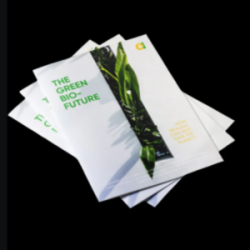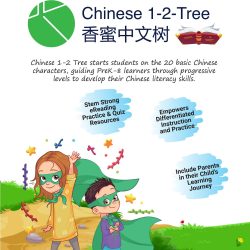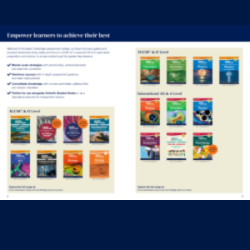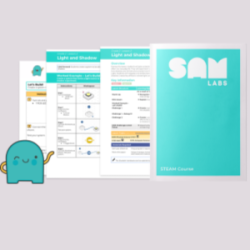Modern parenting often feels like a balancing act between guiding, protecting, and encouraging independence. With so many voices championing ‘tiger parenting’ or the ‘helicopter’ approach, it’s easy to feel unsure about what’s best. But a gentler, emotionally attuned style, known as elephant parenting, is emerging as a thoughtful alternative that prioritises connection and empathy over pressure and control.
Coined by journalist Priyanka Sharma-Sindhar, elephant parenting draws inspiration from how elephants care for their young: with deep nurturing, strong emotional bonds, and enduring presence. This approach centres on supporting emotional development rather than solely academic or behavioural outcomes. In this article, we’ll explore what elephant parenting looks like in practice, how it compares to more common styles, and why it can be especially powerful in helping children build confidence, resilience, and emotional wellbeing.
What Is Elephant Parenting?
At its core, elephant parenting is a compassionate and emotionally responsive approach that values connection over control. It’s built on the belief that children thrive when they feel safe, supported, and deeply understood, not pressured or micromanaged.
While tiger parenting often focuses on high achievement and strict discipline, and helicopter parenting can involve hovering to prevent failure, elephant parenting is different. It’s less about managing outcomes and more about nurturing emotional strength from the inside out. Parents using this style remain closely involved, but their involvement is guided by empathy and patience rather than anxiety or ambition.

This doesn’t mean permissiveness or a lack of boundaries. In fact, elephant parents set limits with warmth and consistency, often explaining the “why” behind rules to build trust and emotional literacy. The result? A home environment where students feel safe to express feelings, recover from mistakes, and grow at their own pace. For families navigating international schooling or big transitions, this kind of support can make a real difference in long-term wellbeing.
How Elephant Parenting Differs from Helicopter and Tiger Parenting
To understand the value of elephant parenting, it helps to compare it with two better-known styles, namely helicopter and tiger parenting. Each comes with distinct beliefs, behaviours and outcomes, especially when it comes to emotional development.

Helicopter Parenting
This style involves constant monitoring and intervention. Helicopter parents often step in to prevent failure, resolve conflict or over-manage routines. While it may come from a place of love, it can unintentionally reduce a student’s sense of autonomy. Over time, children may become dependent on adult reassurance, lacking confidence in their own problem-solving abilities.
Tiger Parenting
Popularised by stories of strict academic expectations, tiger parenting places a strong focus on excellence, structure and high performance. Praise is often tied to results rather than effort, which can increase pressure and fear of failure. Students raised with this model may excel on paper, but they can also experience higher levels of stress and anxiety.
Elephant Parenting
Elephant parenting blends emotional warmth with clear expectations. It acknowledges that emotions matter, that mistakes are part of learning, and that secure relationships form the foundation for resilience. These parents offer guidance, but they also encourage self-expression and independent thinking. The result? Students who are not only capable, but emotionally grounded.
Why Emotional Attunement Matters
Emotional attunement, the ability to recognise and respond appropriately to a child’s emotional state, is at the heart of elephant parenting. When students feel seen and heard, their sense of safety grows. This lays the groundwork for healthy emotional development and stronger mental wellbeing.
Studies have consistently found that students who experienced consistent emotional support from caregivers had significantly lower rates of anxiety and depressive symptoms by adolescence. Rather than minimising big feelings or rushing to ‘fix’ distress, elephant parents help children label emotions, process them, and develop coping strategies.

For example, when a student comes home from school upset after a conflict with a friend, an emotionally attuned parent might say, “That sounds like it really hurt. Do you want to talk about what happened?” instead of “Don’t let it bother you” or “Just ignore them”. This subtle difference encourages emotional literacy; a skill that’s strongly linked with better academic, social and psychological outcomes.
Support Without Overprotection
One of the strengths of elephant parenting is its ability to support without smothering. Unlike helicopter parenting, which often leads to over-involvement in a student’s decisions, elephant parenting encourages parents to be present and supportive, but not controlling. It’s a style that believes in stepping in when needed, and stepping back when appropriate.
Imagine a student struggling to complete a science project. A helicopter parent might take over the task to guarantee a top grade. An elephant parent, in contrast, might sit beside them, offering encouragement and asking reflective questions like, “What do you think is the best way to test this idea?” This approach builds the student’s confidence in their own problem-solving abilities.

It’s a balance between emotional safety and independence. While tiger parenting may push a child toward high achievement through pressure and discipline, elephant parenting focuses on building internal motivation and emotional stability. Over time, this often leads to students who are not only capable, but also more emotionally grounded and self-aware.
Why Emotional Intelligence Thrives Under Elephant Parenting
Emotional intelligence is cultivated through consistent, responsive relationships. Elephant parents often excel here, creating safe emotional environments where students learn to label and express their feelings, navigate conflict, and show empathy for others.
Take the example of a student returning home from school upset after a disagreement with a friend. An elephant parent is more likely to respond with, “That sounds like it was really tough. Do you want to talk about what happened?” rather than immediately offering solutions or brushing off the feelings. This kind of interaction helps children build emotional vocabulary and resilience over time.
Studies also show that students with high emotional intelligence are more likely to succeed academically and socially. They’re better equipped to manage stress, collaborate in teams, and navigate the complex social world of school life.
Nurturing with Strength and Compassion
Elephant parenting offers a thoughtful middle ground in today’s fast-changing parenting landscape. It rejects rigid control and overprotection in favour of empathy, emotional availability, and long-term resilience. While tiger and helicopter styles may aim for high achievement or constant safety, elephant parents invest in connection, believing that secure, supported children grow into confident, capable adults.
By modelling compassion, listening actively, and guiding without hovering, parents can foster not just academic or behavioural success, but deep emotional wellbeing. To explore more perspectives on progressive parenting and education, visit AISL Mall.
Curriculum and Guides that may be of interest:
Get a special discount by quoting code AISLMALL during CHECKOUT.
3Education: StoryTellAR

StoryTellAR is an online and remote platform designed specifically to connect offline materials seamlessly with interactive digital content, using Computer Vision (Augmented Reality). With a user-friendly user interface, curators can use their mobile phone to associate audio recordings, videos and other digital interactions such as audio, AR video plane and URL to any artworks. The corresponding digital content customized by their very own creators will pop up, making the book seamless, personalized and effective.
AlGreen: E-book

AlGreen is at the forefront of developing microalgae technology for air purification and carbon capture, driving a sustainable future. AlGreen’s ebook introduces young learners to biology’s wonders and its role in sustainability. Covering cellular and plant biology, climate science, and future biotech like carbon capture and renewable energy, it inspires environmental stewardship and a passion for protecting our planet.
Chinese 1-2-Tree: Leveled Reading Platform For Pre-k To Grade 8

Chinese 1-2-Tree is a unique leveled reading interactive learning platform designed to provide progressive leveled reading starting with 20 basic characters. Chinese 1-2-Tree offers literacy essentials for every PreK-8 Chinese classroom. We offer a complete solution for reading instruction and student practice, perfect for use in class and at home. Rely on our easy-to-use resources to build foundational skills and strengthen reading comprehension.
Codementum: Gamified Coding Training Platform and Coding Curriculum

Codementum offers a fun, interactive platform to teach kids coding through block-based and text-based languages like Python and JavaScript. Kids learn to create mobile games, apps, and AI projects at their own pace, with gamified courses, self-guided challenges, and resources for all experience levels.
NovaAcademy: Ready-to-Go Curriculum Sets

Novalearn Limited is an EdTech company transforming education by seamlessly integrating machine learning, studio-produced edutainment, and quality STEAM education aligned with international K-12 curricula. All the teaching resources you need for fun and enriching classes, created by the NovaLearn team of experienced educators and industry experts. Each curriculum set includes Project lesson plans, Engaging videos, Interactive activity sheets and Skill-building exercises
Oxford University Press Cambridge IGCSE/O Level/AS & A Level Exam Success Revision Guides

Oxford University Press is a department of the University of Oxford. It furthers the University’s objective of excellence in research, scholarship, and education by publishing worldwide. Cambridge Exam Success Guides from Oxford University Press provide unique exam support and revision guidance for Cambridge IGCSE & O Level and AS & A Level students. Matched to the latest Cambridge assessment criteria. Perfect for use alongside Oxford Resources for Cambridge Student Books or as a standalone resource for independent revision.
SAM Labs: STEAM Pathway Schoolwide Annual Subscription

SAM Labs, an award-winning EdTech company, empowers over 9,000 schools in 60+ countries with innovative Coding and STEAM tools. Students create projects like smart city lighting and solar habitats while meeting curriculum standards, inspiring problem-solving and fostering teacher creativity.










